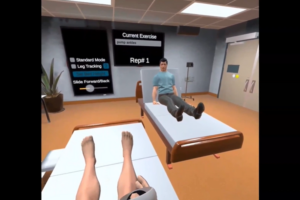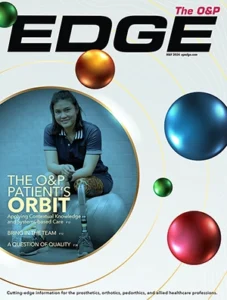
An interdisciplinary team from the Rady Faculty of Health Sciences at the University of Manitoba, Canada, received a grant of $100,000 CAD (about $73,880 USD) from The Winnipeg Foundation Innovation Fund to pursue phantom limb pain research through the use of virtual reality (VR)
Renée El-Gabalawy, PhD, associate professor of clinical health psychology, and anesthesiology, perioperative, and pain medicine at the Max Rady College of Medicine, is leading the research, with co-principal investigators from orthopedic surgery, internal medicine, and physical therapy.
The team will build on its previous research that developed VR technology that incorporated graded motor imagery, a technique used to treat chronic pain by retraining the brain. They will also be conducting a clinical trial to evaluate whether the first-of-its-kind VR treatment works.
One stage of graded motor imagery uses an adapted mirror box therapy, in which a patient’s limb is simulated to make it look like their missing limb is there. This helps the brain accommodate the missing limb thereby reducing pain signals. In the VR setting, the patient sees themself with both their limbs as they perform a sequence of exercises with the use of integrated sensor technology.
“This funding is instrumental in terms of taking our research to the next step,” El-Gabalawy said. “If it’s found to be effective, I envision a future where this VR treatment will not only be accessible to patients in the hospital, but also in the comfort of their homes.”
Editor’s note: This story was adapted from materials provided by the University of Manitoba.




